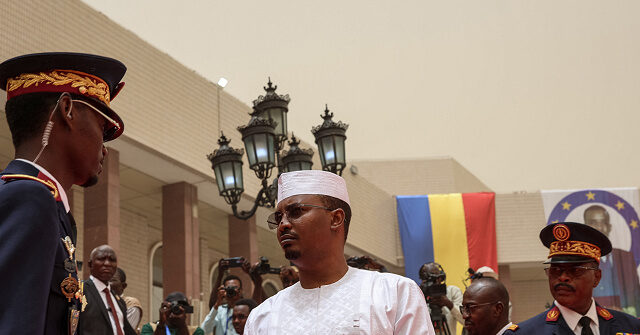Chadian President Mahamat Idriss Deby has issued a stark warning regarding his nation’s participation in the Multinational Joint Task Force (MNJTF), a coalition established to combat terrorism in the Lake Chad basin. His frustration stems from the recent deadly ambush by Boko Haram militants that resulted in the loss of 40 Chadian soldiers, prompting Deby to criticize the MNJTF for inadequate protective measures against this persistent threat. He expressed dissatisfaction with the coalition’s operational effectiveness, noting a “lack of joint efforts” and suggesting that the task force appears to be in a state of stagnation. Deby proposed that Chadian forces, instead of remaining integrated within the MNJTF, could be redirected towards his intended offensive against Boko Haram, dubbed “Operation Haskanite,” which aims to intensify military responses against the insurgents.
In light of the tragic events following the Ngouboua attack, religious leaders in Chad, including Catholic bishops, held a day of prayer to mourn the deceased soldiers. Archbishop Djitangar Goetbe Edmond condemned the violence perpetrated by Boko Haram and expressed sorrow for the families affected, extending condolences to the victims’ families and the nation as a whole. The bishops emphasized the deep societal impact of such extreme acts of violence, which have left communities in a state of grief. The task force, originally established in 1994 to address cross-border banditry among the Lake Chad states, has since shifted its focus to countering terrorist organizations like Boko Haram and ISWAP, particularly after facing increased attacks and growing regional instability.
The MNJTF underwent a significant reorganization in 2015, as it sought to enhance its operational framework with the backing of the African Union. While it has seen some successes in its campaign against terrorist groups, the task force has been hampered by issues such as inadequate funding, poor organization, and an overall lack of decisive action, allowing insurgents moments to regroup after assaults. Member countries have often hesitated to relinquish control of their forces, choosing instead to act independently against Boko Haram and ISWAP, which undermines the effectiveness of the joint coalition. Chad’s national military capability is viewed as the most robust within the MNJTF, and Deby’s potential withdrawal could cripple the task force, highlighting Chad’s central role in regional military operations.
The recent deterioration in regional stability can partly be attributed to the increasing frequency of military coups across Africa, coinciding with a waning U.S. influence under President Biden. Frustration with perceived inadequate support for counter-terrorism efforts was evident as Niger, following a coup in July 2023, expelled U.S. forces. Chad followed suit, echoing calls for the withdrawal of American troops stationed in the region. Various nations have reacted to the rise in Islamist violence, with some, like the Nigerien military, claiming their coups were motivated by the belief that civilian leadership was ineffectual in addressing the threat posed by groups like Boko Haram. This turmoil reflects a broader pattern of instability affecting the Sahel region, which has been plagued by insurgencies, leading to an environment ripe for coups.
Amid these shifts, the Biden administration has faced criticism for its foreign policy in Africa, particularly concerning its approach to military engagement and counter-terrorism. Reports have cited that U.S. forces in Niger were effectively rendered powerless due to operational constraints imposed by local authorities, creating a precarious situation for American troops. Meanwhile, Russia is increasingly moving to fill the influence void left by the United States, providing military support and forming strategic alliances without the conditions typically applied by Western states regarding governance and human rights. The presence of Russian paramilitary groups like Wagner in Chad signals a deeper geopolitical contest in the continent, as these entities establish footholds in regions experiencing conflict.
The evolving dynamics in African geopolitics underscore the consequences of shifting U.S. strategies and regional leadership changes. The Biden administration’s attempts to encourage democratic governance, particularly in contexts like Chad and Sudan, have led to unintended violence and fostered an environment of instability. With perceptions of U.S. foreign policy at a low, frustrations abound regarding the American response to coups and the burgeoning threat of terrorism. The challenges faced by contemporary leaders like Deby reflect not only the immediate concerns over security and governance but also the long-standing implications of international relations and the competing influences of global powers looking to assert their presence within Africa amid ongoing crises.

